Which runtime version to use is defined by your project file, so different runtimes can run in same machine without any issue.
Let's say, for instance you have two services: Service1 is built using .net core 2.1 and Service2 is build with .net core 3.1.
The project files will look like this:
Service1.csproj
<Project Sdk="Microsoft.NET.Sdk.Web">
<PropertyGroup>
<TargetFramework>netcoreapp2.1</TargetFramework>
</PropertyGroup>
Service2.csproj
<Project Sdk="Microsoft.NET.Sdk.Web">
<PropertyGroup>
<TargetFramework>netcoreapp3.1</TargetFramework>
</PropertyGroup>
Once you run your application via dotnet run or dotnet ServiceX.dll, the dotnet executable is the host of the application, and selects the correct runtime based on the assembly metadata. The runtime to use is actually written in the compiled DLL.
Therefore, 2.* and 3.* application can totally coexist in the same machine, provided the required runtimes are installed.
Read more here: https://learn.microsoft.com/en-us/dotnet/core/versions/selection
Check this experiment out.
On my machine have the following installed:
1) Asp.Net Core Runtime 2.1.14
2) Asp.Net Core Runtime 3.1.2
3) IIS 10.0
4) Asp.Net Core Module (installed with hosting bundle)
I created 2 applications, one for each runtime:
dotnet new web -f netcoreapp2.1 -o Service1
and
dotnet new web -f netcoreapp3.1 -o Service2
I then modified both application Startup.cs like this:
public class Startup
{
public void Configure(IApplicationBuilder app)
{
app.Run(async context =>
{
var framework = Assembly
.GetEntryAssembly()?
.GetCustomAttribute<TargetFrameworkAttribute>()?
.FrameworkName;
var taskLocation = typeof(Task).Assembly.Location;
await context.Response.WriteAsync($@"Hello World from {framework}
Location of Task assembly: {taskLocation}.
");
});
}
}
I published both services in release:
Service1:
C:\Users\info\source\repos\Service1> dotnet publish -c Release
Microsoft (R) Build Engine version 16.4.0+e901037fe for .NET Core
Copyright (C) Microsoft Corporation. All rights reserved.
Restore completed in 159,32 ms for C:\Users\info\source\repos\Service1\Service1.csproj.
Service1 -> C:\Users\info\source\repos\Service1\bin\Release\netcoreapp2.1\Service1.dll
Service1 -> C:\Users\info\source\repos\Service1\bin\Release\netcoreapp2.1\publish\
Service2:
C:\Users\info\source\repos\Service2> dotnet publish -c Release
Microsoft (R) Build Engine version 16.4.0+e901037fe for .NET Core
Copyright (C) Microsoft Corporation. All rights reserved.
Restore completed in 41,98 ms for C:\Users\info\source\repos\Service2\Service2.csproj.
Service2 -> C:\Users\info\source\repos\Service2\bin\Release\netcoreapp3.1\Service2.dll
Service2 -> C:\Users\info\source\repos\Service2\bin\Release\netcoreapp3.1\publish\
Under IIS I created two website, one for each service, each pointing at the right output directory
service1.lvh.me >>> C:\Users\info\source\repos\Service1\bin\Release\netcoreapp2.1\publish\
service2.lvh.me >>> C:\Users\info\source\repos\Service2\bin\Release\netcoreapp3.1\publish\
I then visited each website. Visiting service1.lvh.me I got:
 and visiting service2.lvh.me I got:
and visiting service2.lvh.me I got:

As you can see each application is requiring the correct version of the framework, and framework types are loaded from specific folders.
There is therefore no problem to have different versions of .net core framework running on the same machine, and web applications running over specific version on the same IIS.

